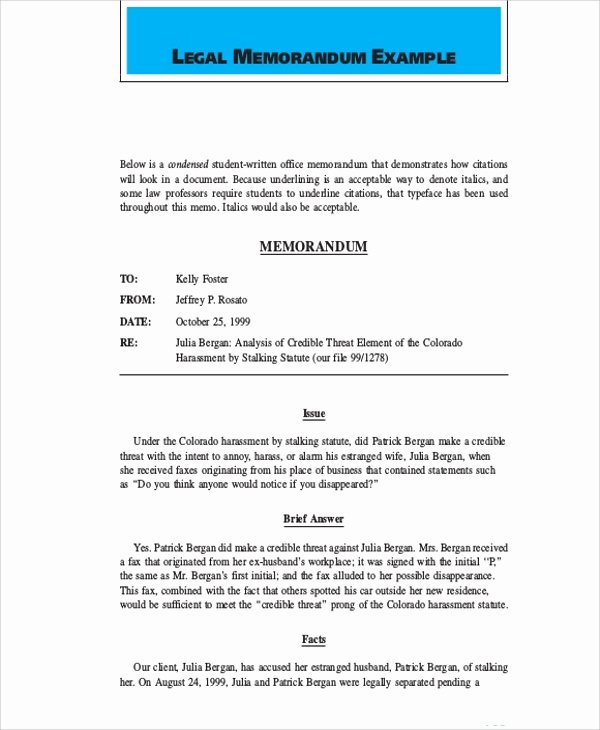Sample Legal Memorandum: Crafting Effective Legal Writing

Crafting a sample legal memorandum is an essential skill for legal professionals. Whether you’re a law student, attorney, or paralegal, understanding how to structure and write an effective legal memo can significantly impact your career. This post will guide you through the process, offering insights into legal writing best practices, memo formatting, and tips for clarity and persuasion. By the end, you’ll have the tools to create compelling legal documents that stand out. (legal memorandum template, legal writing tips, legal memo structure)
Understanding the Purpose of a Legal Memorandum

A legal memorandum serves as a persuasive document that analyzes a legal issue and provides recommendations. It’s often used in law firms, courts, and corporate settings to inform decision-making. The primary goal is to present a clear, concise, and well-reasoned argument. (legal memo purpose, persuasive legal writing, legal analysis)
Key Components of a Legal Memorandum

A well-structured legal memo includes the following elements:
- Heading: Includes the recipient’s name, date, and subject matter.
- Statement of Facts: Summarizes the relevant facts of the case.
- Legal Issue: Clearly states the question to be addressed.
- Brief Answer: Provides a concise response to the legal issue.
- Discussion: Analyzes the law and applies it to the facts.
- Conclusion: Reaffirms the brief answer and offers recommendations.
(legal memo components, legal memo outline, legal memo format)
Tips for Crafting Effective Legal Writing

Use Clear and Concise Language
Legal writing should be straightforward and free of ambiguity. Avoid jargon unless necessary, and ensure your arguments are easy to follow. (clear legal writing, concise legal memos)
Organize Your Thoughts Logically
A logical flow is crucial for persuasive legal writing. Use headings and subheadings to guide the reader through your analysis. (logical legal writing, legal memo organization)
✨ Note: Always tailor your memo to the audience. A judge may require a different tone than a corporate client.
Common Mistakes to Avoid

When writing a legal memorandum, steer clear of these pitfalls:
- Overcomplicating Language: Simplicity is key.
- Ignoring the Audience: Tailor your memo to the reader’s needs.
- Lack of Research: Ensure your legal analysis is thorough and accurate.
(legal writing mistakes, common memo errors, legal memo pitfalls)
Checklist: Crafting an Effective Legal Memorandum

- Include a clear heading with all necessary details.
- Summarize the facts accurately and concisely.
- State the legal issue precisely.
- Provide a brief answer to the issue.
- Conduct a thorough legal analysis in the discussion section.
- Conclude with a recommendation based on your findings.
(legal memo checklist, legal writing checklist, memo writing guide)
Mastering the art of writing a sample legal memorandum is a valuable skill that enhances your credibility as a legal professional. By focusing on clarity, structure, and persuasion, you can create documents that effectively communicate your legal analysis. Remember, practice makes perfect—so keep refining your skills! (legal writing skills, legal memo practice, effective legal memos)
What is the main purpose of a legal memorandum?
+
The main purpose of a legal memorandum is to analyze a legal issue, provide a clear argument, and offer recommendations based on the analysis. (legal memo purpose, legal analysis)
How do I structure a legal memorandum?
+
A legal memo typically includes a heading, statement of facts, legal issue, brief answer, discussion, and conclusion. (legal memo structure, legal memo components)
What are common mistakes to avoid in legal writing?
+
Common mistakes include overcomplicating language, ignoring the audience, and lacking thorough research. (legal writing mistakes, common memo errors)


